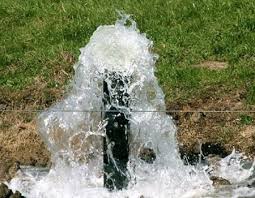
Nature of work
A water engineer can plan, design and develop flood defense programs, modification schemes for sewers, and waste water disposal methods, and he/she oversees repairs of related structures. He/she issues documents for any construction activities, and presents technical information to clients and colleagues. He/she prepares tender documents as a basis for construction, reviews technical submissions, and liaises with various people including local authorities, government agencies, clients, contractors, residents, suppliers, technical experts and other consultants. Also, he/she works collaboratively with other businesses; supports other project managers and directors within the business and across the wider market. He/she is aware of policy and developments in this area, keeps up to date with environmental matters, and presents technical data or project results to both technical and non-technical clients and colleagues; monitors the progress of projects from beginning to end - from the feasibility stage, to design through to construction and handover - or supervises one section of a large project, oversees the operation and maintenance of water and sewerage infrastructure. Environment of work
Unsocial working hours may be a feature of some jobs, especially when meeting deadlines. Site work, in particular, may involve long hours as well as travel. Staff with operational responsibilities or flood monitoring duties may be on a call for out-of-hours emergencies. There is a mixture of office and site-based duties and the latter may be dirty, wet and cold. Self-employment/freelance work is possible in consultancy for engineers with substantial and wide experience. The dress code depends on whether the job is office based or on-site. If his/her job involves working on shifts, this may have an impact on his/her social life. Travel within the working day to visit sites is common. Absence from home at night is occasional, mainly associated with training courses or emergency call-outs. The extent of overseas travel depends on the type of employer. Assignments ranging from a few weeks to a couple of years are possible in the private sector. Professional life
A water engineer may need to take on considerable responsibilities quickly, such as managing a project, controlling large-cost budgets or supervising a team of new graduates. There is plenty of scope to progress to management positions, particularly if he/she is prepared to study further business-related qualifications. It is also possible to reach higher salary grades through the development of further technical expertise, where management responsibilities may not be required. Movement between private and public sectors is relatively easy once sufficient experience has been gained, particularly after he/she has obtained CEng registration at The Order of Syrian engineers. Relevant vacation work can improve his/her chances, along with a demonstrable interest in water engineering, environmental issues or public health evidenced through academic projects or water-related modules undertaken as part of his/her degree/postgraduate study.Typical starting salaries: 45000 SYP.
Getting the job
Although this area of work is open to all graduates from relevant engineering and sciences courses, a degree in civil engineering may improve his/her chances. Other degrees that may be useful include: environmental engineering; chemical/process engineering; biochemistry; environmental science; geography; geology; geophysics; mechanical engineering.Most water engineers have a civil engineering background. This may be preferred for some roles, but it is also possible to become a chartered engineer (CEng) by following up a degree in environmental or physical sciences with an approved MSc in Engineering. This route may be attractive to employers with a particular focus on environmental management and protection, like those that work with natural water systems. He/she must has an academic degree in civil engineering, but candidates can enter the profession with qualifications in related disciplines, including environmental engineering and science, geology, geophysics, biochemistry, chemical engineering, mechanical engineering, and process engineering.
Skills
A water engineer must have excellent asset management skills, as his/her job usually involves work on structures that control water resources. He/she must also have a good portfolio of skills because he/she is responsible for controlling project budgets. Negotiation skills are very useful in this field, as a water engineer often negotiates prices with costumers.Candidates will need to show evidence of the following:
- engineering knowledge;
- experience of project management;
- communication and negotiation skills;
- teamwork and management skills;
- problem-solving ability;
- IT knowledge;
- self-motivation and a proactive approach to work;
- commercial awareness;
- an entrepreneurial spirit;
- good time management skills;
- a flexible approach to work and a willingness to take on new challenges.
Sources and references
If you need any further information on what is included in this file, you can visit the following websites:- The Order of Syrian engineers, Damascus, Tel: 6627256
- www.arab-eng.org, Arab Engineers Forum.
- Arab Standard Classification of Occupations, 2008, Ed. Arab Labor Organization.
Summary
A water engineer is engineering specialists who work in any of the water-based projects, which can range from the provision of clean water to prevention of flood damage and waste water disposal.He can be responsible for repairs and maintenance of reservoirs, sea defense walls and pumping stations. He/she can research solutions to problems such as old infrastructure, and repair any structures relevant to his/her field of expertise.
